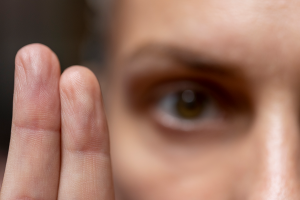Healthy relationships are built on mutual respect, independence, and emotional balance. But sometimes, the lines between caring and controlling, helping and enabling, can blur. This is where codependency often begins.
At Birmingham Anxiety & Trauma Therapy (BATT), our team of 22 counselors, social workers, and psychologists frequently helps clients identify and heal from codependent patterns that keep them feeling stuck, resentful, or unfulfilled. Understanding the signs of codependency in relationships is the first step toward creating healthier, more balanced connections.
What Is Codependency?
Codependency describes a relationship pattern where one person becomes overly focused on another’s needs, emotions, or problems—often at the expense of their own well-being. Over time, this dynamic can create emotional exhaustion, anxiety, and loss of identity.
While codependency can appear in romantic relationships, it can also show up between parents and children, friends, or even coworkers.
Common Signs of Codependency in Relationships
1. You Feel Responsible for Other People’s Feelings: If someone you love is upset, you may feel it’s your job to fix it. You might go to great lengths to avoid conflict, keep the peace, or make others happy—often neglecting your own emotional needs.
2. You Have Trouble Saying “No”: Codependent individuals often have difficulty setting boundaries. You may say “yes” when you want to say “no,” agree to things that drain you, or feel guilty for prioritizing yourself.
3. You Base Your Self-Worth on Others’ Approval: Your sense of value may depend on being needed or liked. When others are unhappy with you, it can trigger deep anxiety or shame, making it difficult to feel secure in yourself.
4. You Try to Control or “Rescue” Others: You may find yourself stepping in to fix someone’s problems—financially, emotionally, or even physically. While the intention often comes from love, this can prevent both people from growing independently.
5. You Feel Anxious or Lost When Alone: Being by yourself may feel uncomfortable or even frightening. Codependent patterns can make solitude feel like abandonment instead of an opportunity for rest and self-reflection.
6. You Ignore Your Own Needs: You may struggle to identify what you want or need. Your focus is often on others, leaving you feeling depleted, resentful, or disconnected from your own desires.
7. You Stay in Unhealthy Relationships Too Long: Codependency can make it difficult to leave situations that are emotionally draining or even harmful. You may fear being alone, disappointing someone, or feeling like you’ve failed them.
How Therapy Can Help Break Codependent Patterns
Healing from codependency isn’t about caring less—it’s about learning to care for yourself, too. In therapy, you can learn to:
- Build healthy boundaries without guilt
- Develop a stronger sense of identity and self-worth
- Recognize and change people-pleasing behaviors
- Communicate assertively and authentically
- Cultivate relationships based on mutual respect and emotional balance
At Birmingham Anxiety & Trauma Therapy, our trauma-informed therapists use evidence-based approaches such as Cognitive Behavioral Therapy (CBT), Internal Family Systems (IFS), and Emotionally Focused Therapy (EFT) to help clients break free from unhealthy relational patterns and reconnect with their authentic selves.
Reclaim Your Sense of Self
If you recognize some of these signs of codependency in relationships, you’re not alone—and you can change the way you relate to others without losing your capacity for empathy and care. Healing codependency takes awareness, support, and practice—but it’s absolutely possible.
You deserve relationships that feel balanced, respectful, and fulfilling. Reach out to Birmingham Anxiety & Trauma Therapy today to schedule a session with one of our experienced therapists and begin your journey toward emotional freedom and self-trust.







